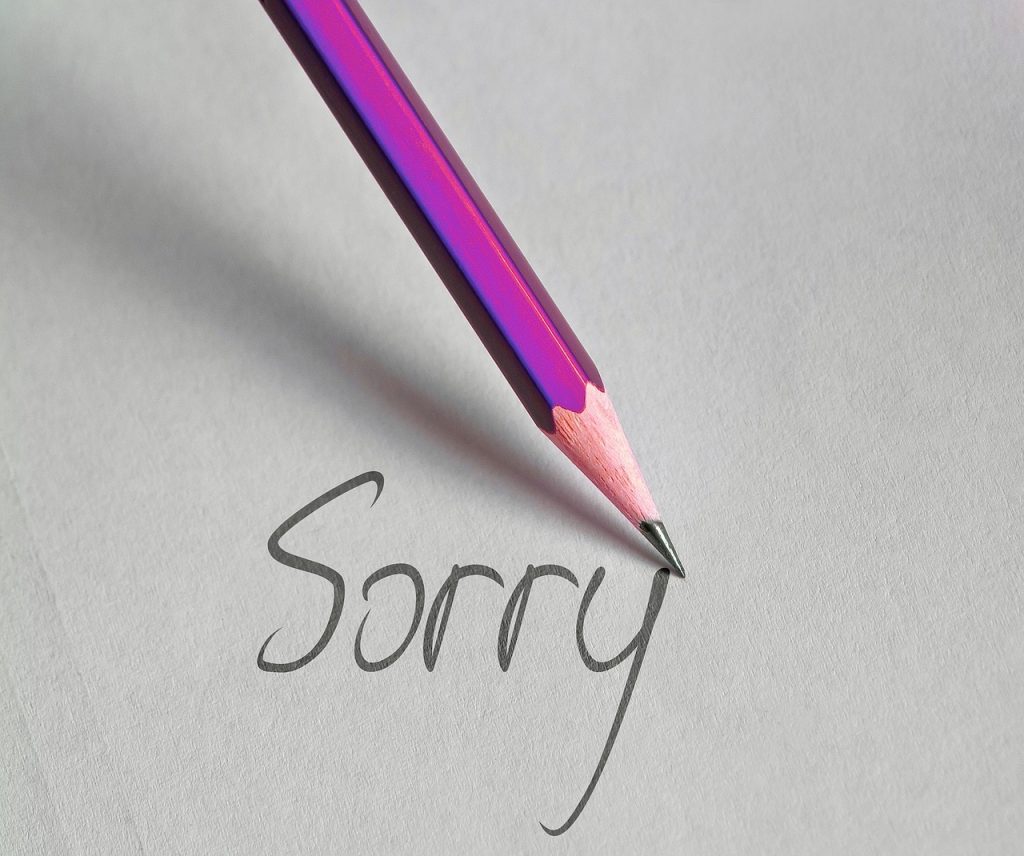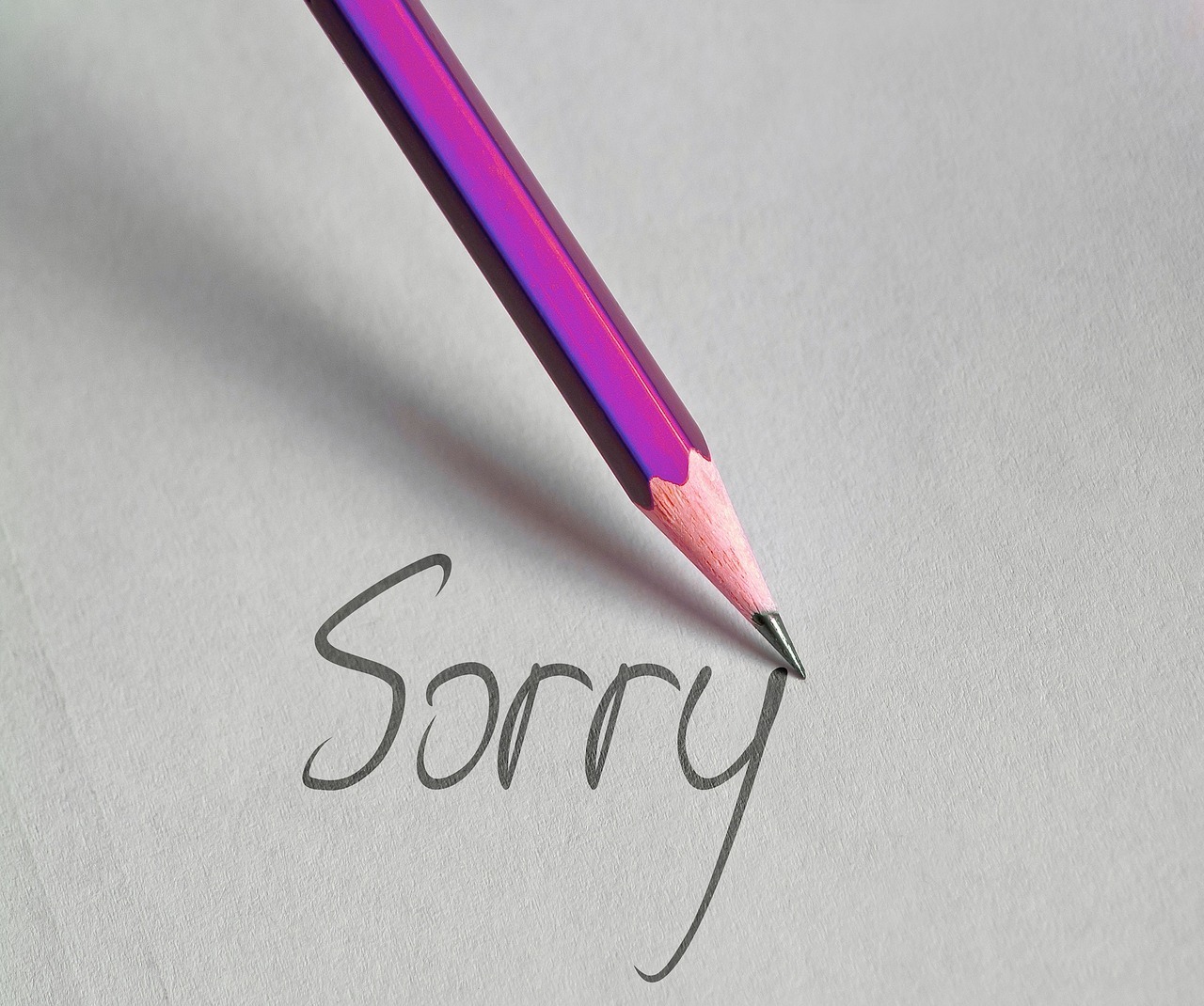Five Things You Should NOT Apologise for when Presenting

Sorry seems to be the hardest word
Whether you’re an experienced speaker or presenting for the first time, it can be very easy to let the word ‘sorry’ slip out during your talk and at times this can detract from your message.
Here are five things you should NOT apologise for:
1) Not being as good as the person speaking before.
If the previous speaker was amazing, funny or wowed the audience it’s easy to be tempted to start with a comment like, “I don’t know how I’m going to be able to follow that!”, which may seem innocuous, but it plants the idea in the audience’s mind that you aren’t going to be as good as them. It’s fine to refer to a previous talk/presentation and if you can make relevant links that’s even better, but don’t fall into the trap of comparing yourself to them. Remember you bring your own value, ideas and character that’s unique.
2) Your slides.
I’ve noticed that people who have prepared slides seem to spend an awful lot of time apologising for them: “Sorry if you can’t read that at the back.” or “Sorry the text is a bit small.” My advice here is simple. Make sure you don’t have anything to apologise for. If you take time to put together the presentation properly, there shouldn’t be any small text in the first place or parts people can’t read. My general rule is that size 18 font should be the absolute minimum text size, but you should aim for about size 30 to give best readability. Remember the slides are just a guide and people are there to listen to you rather than read from a screen. Aim for about 5-10 words per slide in bullet point or keyword format rather than full sentences. If you need to give more detail, prepare a printed handout or email information either in advance or afterwards.
3) Anything the audience doesn’t know about.
They won’t know you were supposed to show a fancy video, but the internet failed unless you tell them. Check as much as you can that everything is in place before you start and be prepared to adapt. In the example above rather than apologising the video doesn’t work, tell them as a bonus/extra you will sending them a link to a video that they can watch to help solidify what they have learnt. That way it becomes a positive rather than a negative. That also works if you have forgotten the handouts, missed a bit out, don’t think it’s as good as the last time you did it and many other things that to you are mistakes, but that the audience doesn’t have to know about.
4) Not being a good speaker or being new to public speaking.
Many first time speakers stand up and immediately say, “I’m sorry” as if they think they will be bad and want to apologise in advance! They usually follow this up with, “I’ve never done anything like this before.” or, “I’m not good at public speaking.” Again, why start off by putting something negative in the mind of the audience? Wouldn’t it be great to leave them thinking you are an experienced speaker because you gave such a good talk?
5) Rushing through the content.
I’ve written a whole other article about how to fit your content into the allocated time, but here are a few thoughts. Some of the weakest presentations are those where the person is rushing through, constantly apologising for not going into detail and missing bits out or, worse, significantly running over time. It always leaves a poor impression. My top tip is to have more content than you think you can cover in the time, but only plan to deliver three quarters of it. The rest is a bonus if you get to it, and you can tell the audience they are getting extra material, which leaves them feeling they have got more than expected. You can then cover the planned material without feeling the need to rush.
For those of you who are wondering when you can say sorry, here are a few things you can apologise for:
Accidentally standing on an audience member’s foot.
Spilling your glass of water over the technical equipment causing thousands of pounds worth of damage.
That’s probably about it…
Giving presentations doesn’t come naturally to everyone, so if you would like more support with presentation skills, please get in touch.


